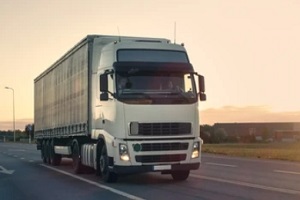 As a trucker, you usually rely on your employer’s insurance to cover incidents that happen while on the road. If you are transporting goods and are in a collision, damages to the goods, repairs to the truck, and more are often covered under the insurance policy that your employer maintains. However, because many truckers own their own rigs, they are still faced with potential issues once they are off the clock.
As a trucker, you usually rely on your employer’s insurance to cover incidents that happen while on the road. If you are transporting goods and are in a collision, damages to the goods, repairs to the truck, and more are often covered under the insurance policy that your employer maintains. However, because many truckers own their own rigs, they are still faced with potential issues once they are off the clock.
If an accident or other problem were to arise during your private time driving the truck, you would no longer be able to utilize your employer’s insurance policy. However, while these two offerings may appear similar on the surface, it is important for you to understand the differences so that you can make the right choice for your situation. Read more to learn how bobtail and non-trucking insurance play a role.
What Is Bobtail Insurance?
Bobtail insurance is a type of trucking insurance that protects you once you have completed your haul. For example, if you have dropped off a load in one location and are driving in between that drop-off and the next pickup, bobtail insurance would cover incidents that occur in that time.
Similarly, if you encounter trouble when you are driving home after dropping off your loaded trailer, bobtail insurance serves as liability coverage during this time. This leads many drivers to assume that bobtail insurance is an “off the clock” type of policy that protects you whenever you are using the vehicle for non-business purposes. However, this is not entirely true.
What Is Non-Trucking Insurance?
 Non-trucking insurance is in many ways similar to bobtail insurance because it covers you whenever you are using the truck for a purpose that is not strictly related to business. It is sometimes referred to as contingent liability insurance, and like bobtail insurance, it keeps you protected after you have dropped off a load and are returning home or on the way to your next task.
Non-trucking insurance is in many ways similar to bobtail insurance because it covers you whenever you are using the truck for a purpose that is not strictly related to business. It is sometimes referred to as contingent liability insurance, and like bobtail insurance, it keeps you protected after you have dropped off a load and are returning home or on the way to your next task.
While many companies do not necessarily require bobtail insurance, most do expect their drivers to maintain their own non-trucking insurance policies. Why? The answer comes down to the minute differences between how these two policies operate.
How Are These Two Types Of Insurance Different?
Both bobtail insurance and non-trucking insurance sound almost identical because they both can cover you during times when you are not working but must still use your truck. However, the key difference is how your truck is set up during these times. With bobtail insurance, you are only covered if you are not carrying any type of load.
This means that your truck must not be traveling with any sort of trailer or load; even if the trailer is empty and you are not really transporting anything, you will still not be covered under your bobtail insurance policy. It is for your truck only and not the trailer.
Conversely, non-trucking insurance is broader and will cover you whenever the truck is being used for anything not related to business purposes, regardless of whether it currently has a trailer attached and whether that trailer is carrying anything.
This generally means that non-trucking insurance is more expensive as your liability coverage choice, but that is because it covers a range of potential outcomes. This is also the reason most employers will require that their employees maintain their own policy for non-trucking insurance so that their workers are always protected, regardless of whether they currently have a trailer or tow attached.
However, the wider reach of non-trucking/contingent liability insurance does not necessarily make bobtail coverage automatically obsolete. It can be the perfect fit for certain situations, and it is important that you carefully evaluate how you utilize your truck to select the best insurance option for you. If you never travel with a trailer outside of work, bobtail insurance could be the right choice that suits both your needs and your budget.
Trust The Experts To Help You Choose The Ideal Insurance Coverage For Your Situation
If you are unsure how to determine whether bobtail insurance or non-trucking coverage is right for your situation, or if you need more information, work with the experts at Burton & Company. Reach out to learn more about the variety of policies, to ask any questions about how trucking insurance works, or to get started with a policy so that you can drive confidently, knowing you are protected.

